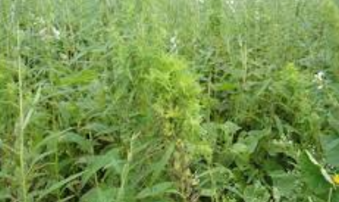Candidatus Phytoplasma: New Microbe Threatens Sesame Crop Yields
Recent findings reveal a new microbe harming sesame crops in Midnapore, West Bengal, which raises concerns for farmers and the agricultural community. Sesame, known as the “Queen of Oil,” has a rich history and important health benefits. However. varieties require enhancement for optimal production.
The Importance of Sesame
Sesame is an ancient oilseed crop and is highly valued for its oil, which contains antioxidants and heart-healthy properties. Despite these benefits, sesame oil is not widely used as a primary cooking oil in India. The crop’s potential remains underutilized due to the need for improved varieties.
Research Background
Professor Gaurab Gangopadhyay and his team at the Bose Institute have dedicated 14 years to sesame improvement. They employed advanced breeding techniques to enhance the crop’s qualities. Their research took them to sesame fields in East and West Midnapore, where they encountered unexpected challenges.
Discovery of the New Microbe
During field visits, researchers observed a peculiar disease affecting sesame plants. These plants exhibited a reversal to their vegetative state after flowering. White flowers turned green, failing to develop properly. This anomaly prompted further investigation.
Identification of Candidatus Phytoplasma
Prof. Gangopadhyay identified the cause as Candidatus Phytoplasma. This microbe is a type of bacteria that lacks a cell wall. It thrives in the phloem, the nutrient-rich part of plants. The bacteria spread primarily through sap-sucking insects like leafhoppers and plant-hoppers.
Impact on Sesame Crops
The disease leads to flower deformation, giving them a leafy appearance. This condition severely impacts sesame plants and their yield. Farmers face important losses, threatening the economic viability of sesame production in the region. The agricultural community must address this emerging threat to ensure crop sustainability.
Important Facts for Exams:
- Candidatus Phytoplasma: This microbe is a wall-less bacterium affecting various crops. It thrives in plant phloem and is spread by sap-sucking insects. It causes important crop yield losses.
- Bose Institute: Located in Kolkata. this research institution focuses on advanced biological studies. It has contributed to various scientific fields, including genetics and agriculture, enhancing crop varieties over decades.
- Midnapore: A region in West Bengal. known for agriculture. It faces challenges from emerging plant diseases. The area is crucial for sesame cultivation, affecting local economies and food security.
- Queen of Oil: Sesame is often referred to as the “Queen of Oil” due to its high nutritional value. Its oil is rich in antioxidants but remains underutilised in Indian cooking.
Month: Current Affairs - November, 2024
Category: Agriculture Current Affairs


